Pedantics
It's a curious thing to have someone look down their nose at you whilst they're sitting across your kitchen table, eating your food, participating in friendly discussion to catch up with one another. Or rather, let me be an English major - staring down his nose.
I'm an English major, true. But I teach religion at a Catholic High School. More to the point, I come from a very faithfilled home, and attended an amazing theological university. One can't help but soak up belief. (Or rather, one must work very hard to not soak up belief. Stupid to do, but several people I know, love and taught have done so. One must applaud their effort even while rolling one's eyes at the result.) And generally speaking, I've found that because of my strong belief, I've had good discussions with other people equally strong in their beliefs. Traipsing around a RenFest with a Hindu discussing the uses and (American popular wiccanism) abuses of incense, brainstorming over J. Alfred Prufrock with Bhuddist pianists, chatting with Jews over Applebees' chicken platter with onion peels about what keeping kosher really means, talking shop about fantasy trends with avid wiccans, discussing politics and social justice with atheists - and praising God to high Heaven with my fellow Christians. (Alas and alack, I've no Muslim friends yet. Those curious may apply.)
But because of fervid belief, communication - to some degree or another - is possible. Perhaps it's a matter of me listening while the Hindu or the Jew explain to me such and such a custom. Perhaps it's a debate with the atheist or agnostic (infinitely more frustrating, but at least mentally challenging, and usually the need for goodness in the world can be agreed upon, even if we don't agree on what is fundamentally good). Frequently, as I've said, it's finding common ground with fellow Protestant Christians - and there's so much common ground.
I guess I've just taken hearty, intelligent, and respectful dialogue for granted.
I've come to believe that even if you absolutely, passionately disagree over a topic, each member can still appreciate the other person's intelligence.
But today, I was looking up nostrils. And believe me, it ain't a pretty sight.
I teach Catholicism. It's what I'm hired to do, and I love doing it, and I do so anyway. I aspire to be, as was written of Dorothy Sayers, a swashbuckling apologist. If I could even touch Chesterton's shadow, Lewis' ease, Agustine's poetry or Acquinas's depth I should be happy. I tend towards guerrilla tactics. I make the turf, invite strays onto it, strike up a friendly conversation and then WHAM - was that a theological idea? Oh, well, back to those Mets....
And I think I'm generally considered to be above a goon's IQ. At least, so my grades have declared. Those who read my ramblings may have every cause to disagree. But I think I may safely say that I'm not a gibbering idiot. (Usually. ;)
Nor, do I think, He Who Looked Down His Nose considers me a case of religious autism. Or rather, a specialized case. He simply considers everyone who is not of his "non-denominational" brand of Christianity - especially those God-forsaken Catholics! - to be poor, demented fools. Poor, perhaps. God's fool, I hope! Demented...?
So, he's sitting in our kitchen, eating our food, next to his wonderful, silent wife and wonderful, silent son (not that it's wonderful they were silent - far from it - simply that NO ONE could get a word in edgewise), and lecturing us - my father who knows the Bible and the Church Fathers and the modern apologists and Church History forwards and backwards, my mother who founded and ran not one but TWO ecumentical Bible studies and may start a third up here, my brother who worked as a missionary for a YEAR, and myself who teaches the subject and is paid for doing so - about Christ.
I mean, come on.
Now, don't get me wrong. I wouldn't have minded a good sermon. If Father Groeschel had walked in, plunked himself down, closed his eyes (he tends to do so, don't know why) and talked for an hour and a half as he did at my college Baccalaureate...it would have been too short. The fundamental difference (aside from theological debates)? Father Groeschel didn't consider us nummies.
So here he is, going on and ON about how Baptism is not a sacrament and the Bible proves it (see this as well as others on the site for Biblical refutation), about how Christ fulfilled but completely negated the old covenants (see St. Thomas Acquinas' reply), about how God is a God of peace and therefore would never send anyone in the post-revelation age to war (completely not seeing that we live in a fallen world and must contend with fallen things. Yes, God desires peace first of all, but we do live IN the world, and there are times when war is just and even necessary, although most likely rare). We asked what they thought about the recent Episcopalian church scandals, and their answer was: "Well, that's not our church." (Hmmm, sounds a lot to me like, "Well, we're not Jews" to those living under Hitler's regime.)
Not everything he said was frustrating, of course. A lot was preaching to the choir. The sovereignty of God. But the very fact that he was catechising us about the existance of God or Christ's saving grace indicated that he felt it necessary to inform us of this because, as Catholics, we were obviously unaware. Just like we are obviously ignorant of the Bible, despite the fact that we're quoting it back to him. And some things were shocking to me - his insistence that the New Testament is everything, as though the Old Testament were merely a quaint historical document but as a whole no longer relevant except perhaps as VeggieTales fodder. Or that he kept referring to Protestant tradition - although I'm sure he would chastise us were we to appeal to tradition as well. (Which includes, by the way, Old Testament tradition - hence a kinship to Fiddler on the Roof! :)
Needless to say, I had to clutch my knees several times, and once even to cover my mouth. Which didn't much matter because, as I mentioned, he barely let any of us get a word in edgewise to disagree OR agree.
Because, believe me, there's a lot of common ground we share. But he wasn't doing us the courtesy of believing such ground existed. His belief is so very insular. So very not-of-this-world, so very hating living IN this world. That he should draw the line around himself, rather than looking to God's line which draws not necessarily around people, but around what is God.
Nothing exists outside of God. He is so much larger than we ever could be, and yet we would subjugate Him to our interpretation of His Word. Yes, God draws the line, or rather God IS the line and the interior and so much more - but again, it is therefore for Him to judge temporally and ultimately whether we have fallen inside or outside of Himself. Nor are we simply passive in this: our actions, our beliefs, our every moment and breath and decision make us either closer to Him or farther from Him and so in a sense, we judge ourselves, we ready ourselves for judgement. And He extends grace and mercy, and can we accept that in that never-ending now, knowing who we are in the light of truth?
Again, the line is not around the person as a whole, but around what a person believes and does, the opportunities he's given or not given, and those he's taken or avoided. And then all that is laid bare at judgement, with glimpses via our conscience and knowledge and understanding and God's good grace while on earth. So the Catholic does not look at the Satanist and say - "YOU, sir, are definitely going to Hell." As my Mom puts it, the Catholic Church - founded by God, defended by God, upheld through all our fallenness by God - is not in the business of putting people in Hell, because God is not in that business either. (Although people may choose so regardless. Just as a salesman desires you to buy his product, but you have free will not to.)
Who am I to judge the Satanist as a whole when I cannot see his soul, and perhaps he himself cannot see the entirety of his soul? Perhaps he thinks he is evil, yet he keeps holding himself back from this or that, or perhaps just once he does something out of charity. Who knows but that when face to face with truth he may not find himself given that same measure of charity - and accepting it. While the "older son" of the Prodigal may live a righteous life, but do so from a cold and calculating heart, and when presented the charity he has extended, will he find it cold and wanting? Will he spurn it, cocksure of his salvation?
Likewise, then, who am I to judge this man who tilts his nose to Heaven? He spoke out of an absurd belief that I've the brains of a peanut, and hoping perhaps to even save me into his lines of salvation that make no contingency for God's great mercy. I grant salvation comes from Christ alone - although many who enter the Kingdom did not know that until they saw Him face to Face. And perhaps he has offered me grace by teaching me to the value of silence for once - who can say but that he did me a good turn? But then, who is he to be judge and jury of God's salvation over myself, my family, and our faith? (Particularly, and ironically, when his own father is Catholic.) Who is he, moreso, to be the only believable translator of the Bible which is God's Word and perchance He left us with a lens that is more than ourselves. (We stand on the shoulders of giants for so many other things - science, literature, math, etc. - why not this as well, particularly when those who knew Him taught others who taught others who taught others in the same way that all subjects were handed down?) More, who is he to turn a blind eye to another Christian (I say Christian, some days I wonder) religion and say, "It's not my problem. It's not my Church."
It all comes down to this edict: "Live IN the world, but not OF it." Unfortunately, so many Christians either mess up their pronouns and follow something like, "Live ON the world, but not IN it." It's so much more difficult, heart-wrenching, temptation-laden, frustration-building, anxiety-ridden - and rewarding beyond compare to live IN the world, but NOT of it. I have to deal with everything that goes on - good, bad or indifferent. And to build up a fence so high around my body is to allow almost nothing in and give me no room for movement. What if I'm planted in a bad spot? Ah, but I'm protected by my wall! I'm safe (saved? ;). Rather, I will live as God calls us to live: sacredly, set apart. Rather like wandering around with angelic bodyguards to keep at bay whatever is not of God (what is of the world), and to let in what is of God (like other people). I suppose that sounds like a selective porous membrane - a humble metaphor, but Christ became man in a stable.
And the Word became Flesh, and dwelt amongst us.
Do you know that we, as Catholics are supposed to pray the Angelus three times a day - at 6 a.m., noon and 6 p.m.? Those are words from that prayer, and when we say them, we bow or kneel. Likewise, at mass when we recite the Creed, we bow not at the crucifixion nor at the resurrection (although those are worthy!), but at the Incarnation: For us men and for our salvation, He came down from Heaven. By the power of the Holy Spirit, He was born of the Virgin Mary, and became man. It always always always comes back to the Incarnation. The Word became flesh...and dwelt amongst us.
Folks try to santize Jesus. He was a nice man. He was a harmless prophet. He wrote the post-BC version of "chicken soup for the soul." He was a hippy. He was a lunatic. He was a joke. He was only man. He was only God.
All the old heresies - and all the new heresies, too - center around the Incarnation, that Jesus the Christ is FULLY human AND fully divine. What is to be done with this? In His very Flesh, He lived in the world but not of it.
Much is made of the fact that he made fun of the Pharisees and hung out with the prostitutes. But no one ever looks at the rather larger bits that follow those little snippets. He was furious with the Pharisees, not because they were Pharisees, because they were priests, because they were following the Law, but rather because AS Pharisees they should have been good priests, they should have followed His Law and not the laws that they had created in the meantime. Same with the prostitutes: ever read the amazing number of times he turns to them and says, "Your faith has saved you. Go forth and sin no more." (Exactly what the priest says to us in the confessional, BTW, when he's acting in the person of Christ - or rather when Christ is acting through him.)
Go forth and sin no more.
Tough words to live by. Tough Word to live by. Tough God. Tough Love.
And you know what's depressing? Is that none of us are ever going to be able to spend our life on earth sinless. Not you, not me, not St. Francis in the fields, not St. Catherine in her tower. We're each of us sinners. As St. Paul says, "I do what I hate." And yet He also says that through the power of Baptism (see above, boyo), we die to sin by sharing in the salvivic suffering and death of Christ. So although we could wallow and moan that we keep falling, the even MORE awe-full thing is that we are constantly offered salvation. As one monk put it, "We fall down, we get up, we fall down, we get up."
I like plays that deal with that. Salome and Bearskin did. I made Brigadoon do so. The Twelve Dancing Princesses and King Thrushbeard will. About the daily struggle with God - Jacob wrestling the angel, wrestling himself, wrestling Christ. I know what it's like to start like Bearskin in the hole of sin, and to see someone reach down a hand to pull him up - and then to feel the old temptations cling to your pantleg, and the thought, "I could just let go - I could just sink back down - I know what it's like down there - and the light is so bright and my arms are so weary." And then, through grace, to be strengthened and to come ultimately into the light, and brightness and beauty. Or conversely, like the eldest daughter in The Twelve Dancing Princesses to be in the light, to be plodding along, the "good girl" - and to see a hole, and to wonder, and to play along its edge, and then to lower a foot in, and then the other, and then to sink and to fall and fall and fall like Alice, until a soldier follows you down and ransoms you - kicking and screaming perhaps - and brings you back to life.
Those are the stories worth telling, because those are the true stories, and it is THE story - and whether you're atheist or Hindu or Bhuddist or Jewish or Christian or Catholic or clueless and lost - you can't help but look at such a thing and say, "Yes. This is true. I am that person." And more, the Word looks back at you and says, "Yes. I am Truth. I am He for whom thou hast long sought. And long have I waited for thee."
Mood: A very determined and satisfied FWAH.
Music: Mom's radio, on 102.5 currently, and Peter talking about Boy Scouts while Dad tinkers on the piano in the now-very-clean-but-garishly-red-carpeted-room.
Example of Guerilla Tactics: Casually dropping to the son the info that Catholics don't worship Mary. Bwahahahahhahah!
What made my day: My meeting for Pirates went well, went well! Hurrah - I've got my sneaky leitmotifs!
It's a curious thing to have someone look down their nose at you whilst they're sitting across your kitchen table, eating your food, participating in friendly discussion to catch up with one another. Or rather, let me be an English major - staring down his nose.
I'm an English major, true. But I teach religion at a Catholic High School. More to the point, I come from a very faithfilled home, and attended an amazing theological university. One can't help but soak up belief. (Or rather, one must work very hard to not soak up belief. Stupid to do, but several people I know, love and taught have done so. One must applaud their effort even while rolling one's eyes at the result.) And generally speaking, I've found that because of my strong belief, I've had good discussions with other people equally strong in their beliefs. Traipsing around a RenFest with a Hindu discussing the uses and (American popular wiccanism) abuses of incense, brainstorming over J. Alfred Prufrock with Bhuddist pianists, chatting with Jews over Applebees' chicken platter with onion peels about what keeping kosher really means, talking shop about fantasy trends with avid wiccans, discussing politics and social justice with atheists - and praising God to high Heaven with my fellow Christians. (Alas and alack, I've no Muslim friends yet. Those curious may apply.)
But because of fervid belief, communication - to some degree or another - is possible. Perhaps it's a matter of me listening while the Hindu or the Jew explain to me such and such a custom. Perhaps it's a debate with the atheist or agnostic (infinitely more frustrating, but at least mentally challenging, and usually the need for goodness in the world can be agreed upon, even if we don't agree on what is fundamentally good). Frequently, as I've said, it's finding common ground with fellow Protestant Christians - and there's so much common ground.
I guess I've just taken hearty, intelligent, and respectful dialogue for granted.
I've come to believe that even if you absolutely, passionately disagree over a topic, each member can still appreciate the other person's intelligence.
But today, I was looking up nostrils. And believe me, it ain't a pretty sight.
I teach Catholicism. It's what I'm hired to do, and I love doing it, and I do so anyway. I aspire to be, as was written of Dorothy Sayers, a swashbuckling apologist. If I could even touch Chesterton's shadow, Lewis' ease, Agustine's poetry or Acquinas's depth I should be happy. I tend towards guerrilla tactics. I make the turf, invite strays onto it, strike up a friendly conversation and then WHAM - was that a theological idea? Oh, well, back to those Mets....
And I think I'm generally considered to be above a goon's IQ. At least, so my grades have declared. Those who read my ramblings may have every cause to disagree. But I think I may safely say that I'm not a gibbering idiot. (Usually. ;)
Nor, do I think, He Who Looked Down His Nose considers me a case of religious autism. Or rather, a specialized case. He simply considers everyone who is not of his "non-denominational" brand of Christianity - especially those God-forsaken Catholics! - to be poor, demented fools. Poor, perhaps. God's fool, I hope! Demented...?
So, he's sitting in our kitchen, eating our food, next to his wonderful, silent wife and wonderful, silent son (not that it's wonderful they were silent - far from it - simply that NO ONE could get a word in edgewise), and lecturing us - my father who knows the Bible and the Church Fathers and the modern apologists and Church History forwards and backwards, my mother who founded and ran not one but TWO ecumentical Bible studies and may start a third up here, my brother who worked as a missionary for a YEAR, and myself who teaches the subject and is paid for doing so - about Christ.
I mean, come on.
Now, don't get me wrong. I wouldn't have minded a good sermon. If Father Groeschel had walked in, plunked himself down, closed his eyes (he tends to do so, don't know why) and talked for an hour and a half as he did at my college Baccalaureate...it would have been too short. The fundamental difference (aside from theological debates)? Father Groeschel didn't consider us nummies.
So here he is, going on and ON about how Baptism is not a sacrament and the Bible proves it (see this as well as others on the site for Biblical refutation), about how Christ fulfilled but completely negated the old covenants (see St. Thomas Acquinas' reply), about how God is a God of peace and therefore would never send anyone in the post-revelation age to war (completely not seeing that we live in a fallen world and must contend with fallen things. Yes, God desires peace first of all, but we do live IN the world, and there are times when war is just and even necessary, although most likely rare). We asked what they thought about the recent Episcopalian church scandals, and their answer was: "Well, that's not our church." (Hmmm, sounds a lot to me like, "Well, we're not Jews" to those living under Hitler's regime.)
Not everything he said was frustrating, of course. A lot was preaching to the choir. The sovereignty of God. But the very fact that he was catechising us about the existance of God or Christ's saving grace indicated that he felt it necessary to inform us of this because, as Catholics, we were obviously unaware. Just like we are obviously ignorant of the Bible, despite the fact that we're quoting it back to him. And some things were shocking to me - his insistence that the New Testament is everything, as though the Old Testament were merely a quaint historical document but as a whole no longer relevant except perhaps as VeggieTales fodder. Or that he kept referring to Protestant tradition - although I'm sure he would chastise us were we to appeal to tradition as well. (Which includes, by the way, Old Testament tradition - hence a kinship to Fiddler on the Roof! :)
Needless to say, I had to clutch my knees several times, and once even to cover my mouth. Which didn't much matter because, as I mentioned, he barely let any of us get a word in edgewise to disagree OR agree.
Because, believe me, there's a lot of common ground we share. But he wasn't doing us the courtesy of believing such ground existed. His belief is so very insular. So very not-of-this-world, so very hating living IN this world. That he should draw the line around himself, rather than looking to God's line which draws not necessarily around people, but around what is God.
Nothing exists outside of God. He is so much larger than we ever could be, and yet we would subjugate Him to our interpretation of His Word. Yes, God draws the line, or rather God IS the line and the interior and so much more - but again, it is therefore for Him to judge temporally and ultimately whether we have fallen inside or outside of Himself. Nor are we simply passive in this: our actions, our beliefs, our every moment and breath and decision make us either closer to Him or farther from Him and so in a sense, we judge ourselves, we ready ourselves for judgement. And He extends grace and mercy, and can we accept that in that never-ending now, knowing who we are in the light of truth?
Again, the line is not around the person as a whole, but around what a person believes and does, the opportunities he's given or not given, and those he's taken or avoided. And then all that is laid bare at judgement, with glimpses via our conscience and knowledge and understanding and God's good grace while on earth. So the Catholic does not look at the Satanist and say - "YOU, sir, are definitely going to Hell." As my Mom puts it, the Catholic Church - founded by God, defended by God, upheld through all our fallenness by God - is not in the business of putting people in Hell, because God is not in that business either. (Although people may choose so regardless. Just as a salesman desires you to buy his product, but you have free will not to.)
Who am I to judge the Satanist as a whole when I cannot see his soul, and perhaps he himself cannot see the entirety of his soul? Perhaps he thinks he is evil, yet he keeps holding himself back from this or that, or perhaps just once he does something out of charity. Who knows but that when face to face with truth he may not find himself given that same measure of charity - and accepting it. While the "older son" of the Prodigal may live a righteous life, but do so from a cold and calculating heart, and when presented the charity he has extended, will he find it cold and wanting? Will he spurn it, cocksure of his salvation?
Likewise, then, who am I to judge this man who tilts his nose to Heaven? He spoke out of an absurd belief that I've the brains of a peanut, and hoping perhaps to even save me into his lines of salvation that make no contingency for God's great mercy. I grant salvation comes from Christ alone - although many who enter the Kingdom did not know that until they saw Him face to Face. And perhaps he has offered me grace by teaching me to the value of silence for once - who can say but that he did me a good turn? But then, who is he to be judge and jury of God's salvation over myself, my family, and our faith? (Particularly, and ironically, when his own father is Catholic.) Who is he, moreso, to be the only believable translator of the Bible which is God's Word and perchance He left us with a lens that is more than ourselves. (We stand on the shoulders of giants for so many other things - science, literature, math, etc. - why not this as well, particularly when those who knew Him taught others who taught others who taught others in the same way that all subjects were handed down?) More, who is he to turn a blind eye to another Christian (I say Christian, some days I wonder) religion and say, "It's not my problem. It's not my Church."
It all comes down to this edict: "Live IN the world, but not OF it." Unfortunately, so many Christians either mess up their pronouns and follow something like, "Live ON the world, but not IN it." It's so much more difficult, heart-wrenching, temptation-laden, frustration-building, anxiety-ridden - and rewarding beyond compare to live IN the world, but NOT of it. I have to deal with everything that goes on - good, bad or indifferent. And to build up a fence so high around my body is to allow almost nothing in and give me no room for movement. What if I'm planted in a bad spot? Ah, but I'm protected by my wall! I'm safe (saved? ;). Rather, I will live as God calls us to live: sacredly, set apart. Rather like wandering around with angelic bodyguards to keep at bay whatever is not of God (what is of the world), and to let in what is of God (like other people). I suppose that sounds like a selective porous membrane - a humble metaphor, but Christ became man in a stable.
And the Word became Flesh, and dwelt amongst us.
Do you know that we, as Catholics are supposed to pray the Angelus three times a day - at 6 a.m., noon and 6 p.m.? Those are words from that prayer, and when we say them, we bow or kneel. Likewise, at mass when we recite the Creed, we bow not at the crucifixion nor at the resurrection (although those are worthy!), but at the Incarnation: For us men and for our salvation, He came down from Heaven. By the power of the Holy Spirit, He was born of the Virgin Mary, and became man. It always always always comes back to the Incarnation. The Word became flesh...and dwelt amongst us.
Folks try to santize Jesus. He was a nice man. He was a harmless prophet. He wrote the post-BC version of "chicken soup for the soul." He was a hippy. He was a lunatic. He was a joke. He was only man. He was only God.
All the old heresies - and all the new heresies, too - center around the Incarnation, that Jesus the Christ is FULLY human AND fully divine. What is to be done with this? In His very Flesh, He lived in the world but not of it.
Much is made of the fact that he made fun of the Pharisees and hung out with the prostitutes. But no one ever looks at the rather larger bits that follow those little snippets. He was furious with the Pharisees, not because they were Pharisees, because they were priests, because they were following the Law, but rather because AS Pharisees they should have been good priests, they should have followed His Law and not the laws that they had created in the meantime. Same with the prostitutes: ever read the amazing number of times he turns to them and says, "Your faith has saved you. Go forth and sin no more." (Exactly what the priest says to us in the confessional, BTW, when he's acting in the person of Christ - or rather when Christ is acting through him.)
Go forth and sin no more.
Tough words to live by. Tough Word to live by. Tough God. Tough Love.
And you know what's depressing? Is that none of us are ever going to be able to spend our life on earth sinless. Not you, not me, not St. Francis in the fields, not St. Catherine in her tower. We're each of us sinners. As St. Paul says, "I do what I hate." And yet He also says that through the power of Baptism (see above, boyo), we die to sin by sharing in the salvivic suffering and death of Christ. So although we could wallow and moan that we keep falling, the even MORE awe-full thing is that we are constantly offered salvation. As one monk put it, "We fall down, we get up, we fall down, we get up."
I like plays that deal with that. Salome and Bearskin did. I made Brigadoon do so. The Twelve Dancing Princesses and King Thrushbeard will. About the daily struggle with God - Jacob wrestling the angel, wrestling himself, wrestling Christ. I know what it's like to start like Bearskin in the hole of sin, and to see someone reach down a hand to pull him up - and then to feel the old temptations cling to your pantleg, and the thought, "I could just let go - I could just sink back down - I know what it's like down there - and the light is so bright and my arms are so weary." And then, through grace, to be strengthened and to come ultimately into the light, and brightness and beauty. Or conversely, like the eldest daughter in The Twelve Dancing Princesses to be in the light, to be plodding along, the "good girl" - and to see a hole, and to wonder, and to play along its edge, and then to lower a foot in, and then the other, and then to sink and to fall and fall and fall like Alice, until a soldier follows you down and ransoms you - kicking and screaming perhaps - and brings you back to life.
Those are the stories worth telling, because those are the true stories, and it is THE story - and whether you're atheist or Hindu or Bhuddist or Jewish or Christian or Catholic or clueless and lost - you can't help but look at such a thing and say, "Yes. This is true. I am that person." And more, the Word looks back at you and says, "Yes. I am Truth. I am He for whom thou hast long sought. And long have I waited for thee."
Mood: A very determined and satisfied FWAH.
Music: Mom's radio, on 102.5 currently, and Peter talking about Boy Scouts while Dad tinkers on the piano in the now-very-clean-but-garishly-red-carpeted-room.
Example of Guerilla Tactics: Casually dropping to the son the info that Catholics don't worship Mary. Bwahahahahhahah!
What made my day: My meeting for Pirates went well, went well! Hurrah - I've got my sneaky leitmotifs!
 The sporadic ramblings of Emily C. A. Snyder - devoted to God, theatre, writing, and much randominity.
The sporadic ramblings of Emily C. A. Snyder - devoted to God, theatre, writing, and much randominity.
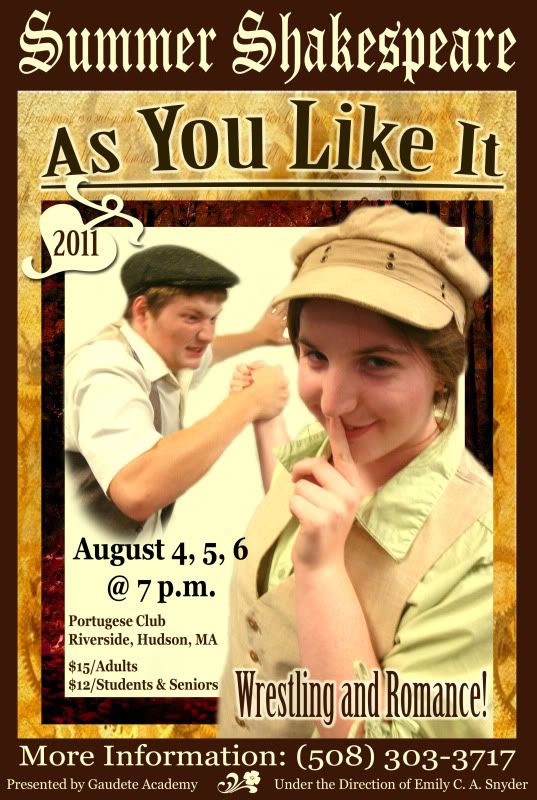








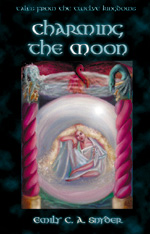

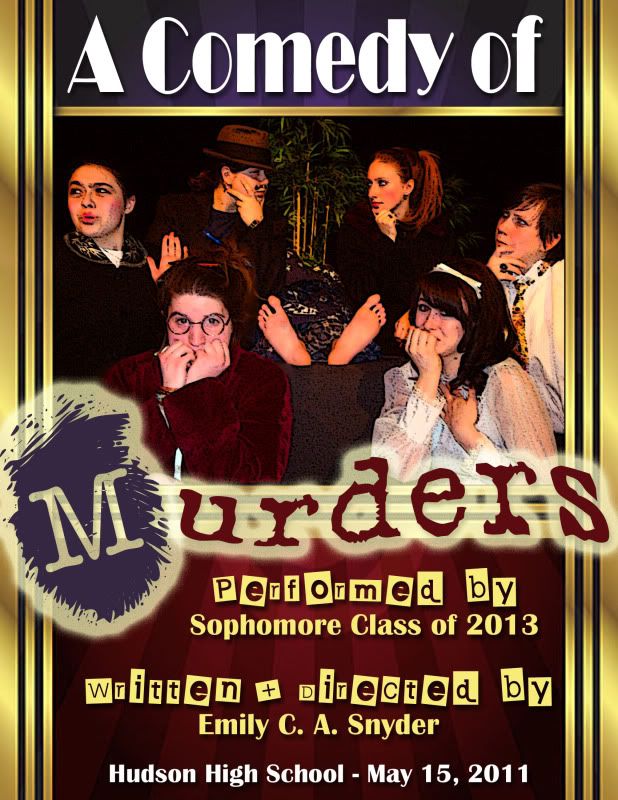
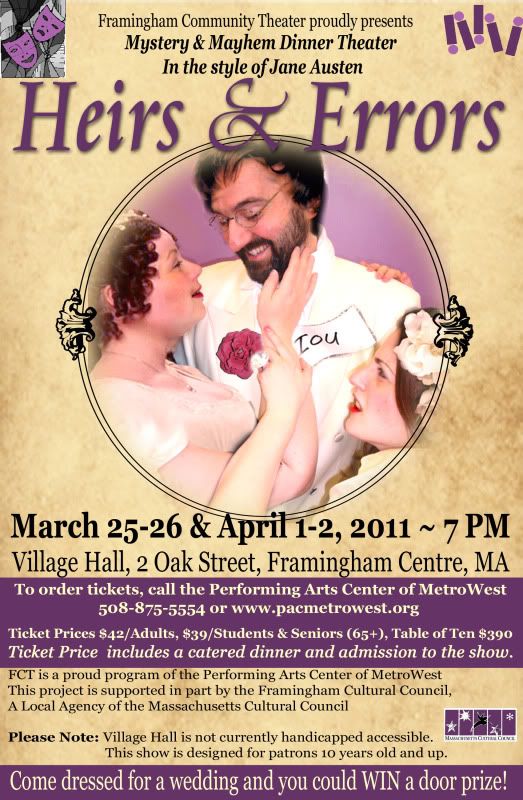

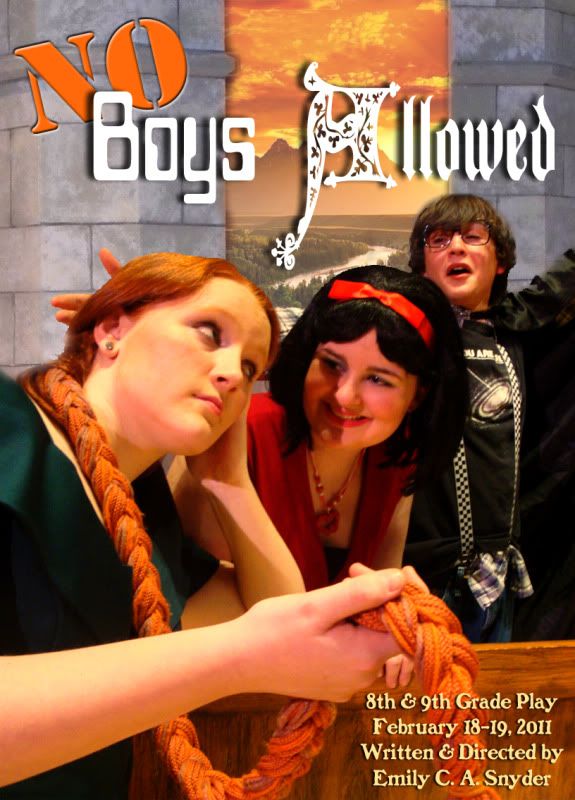


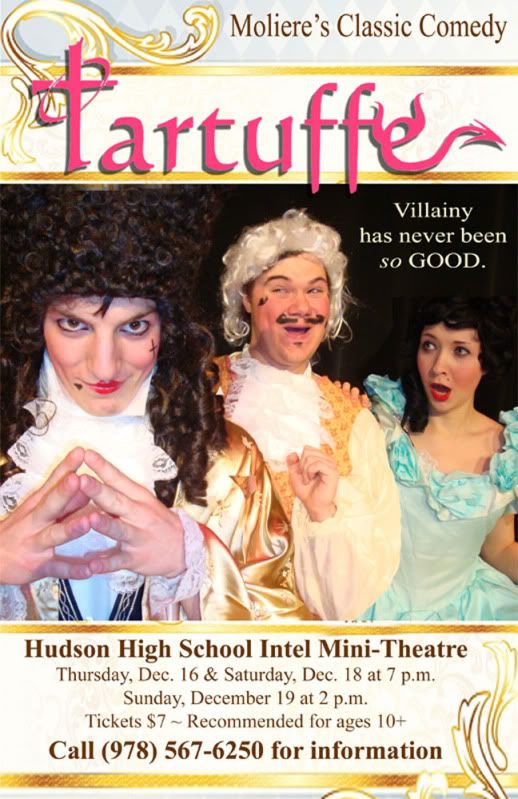
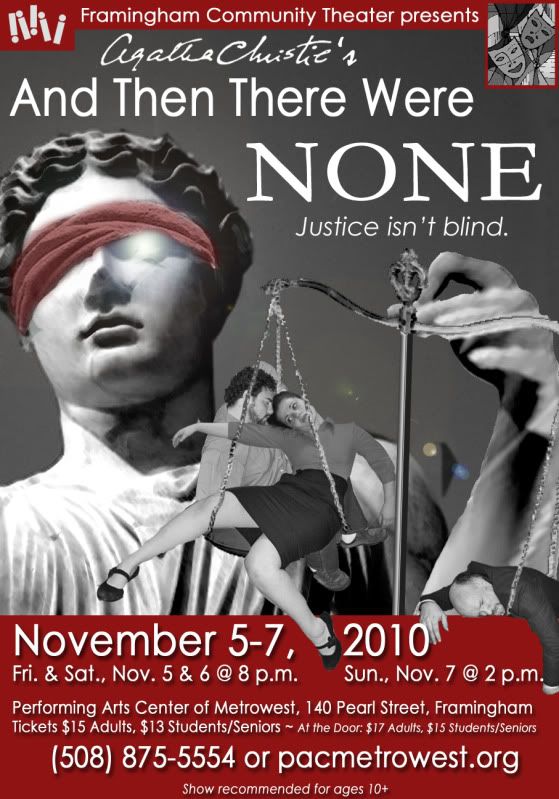
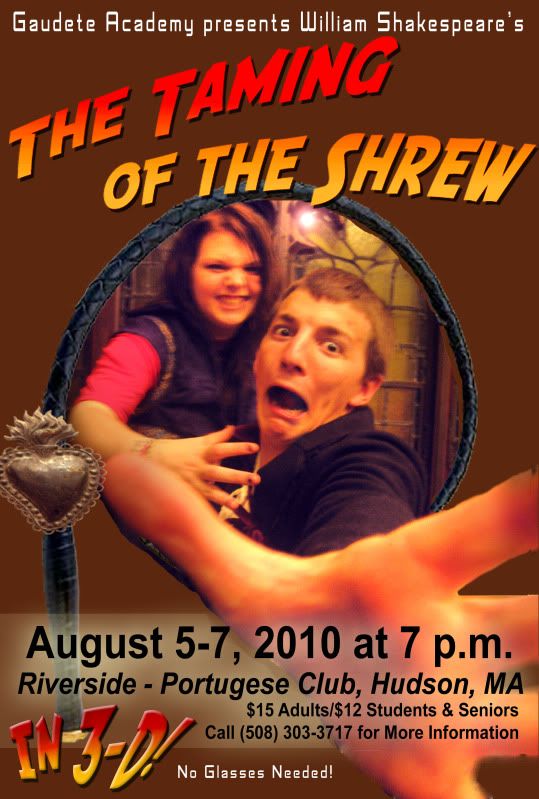

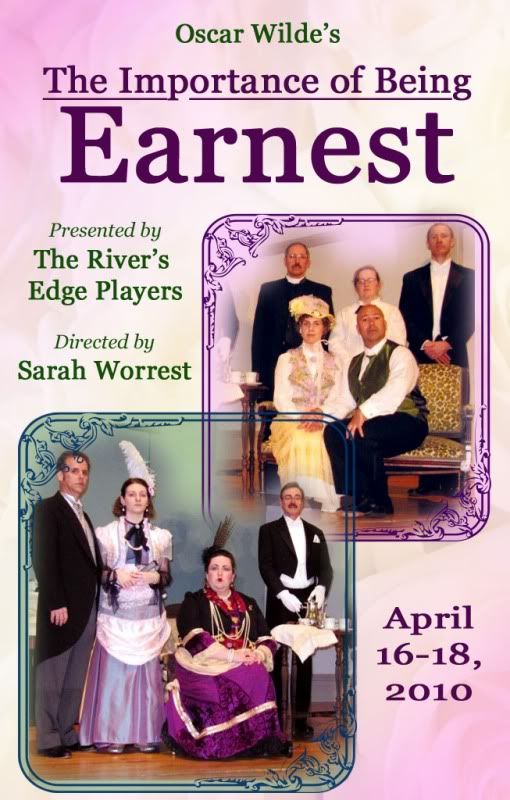




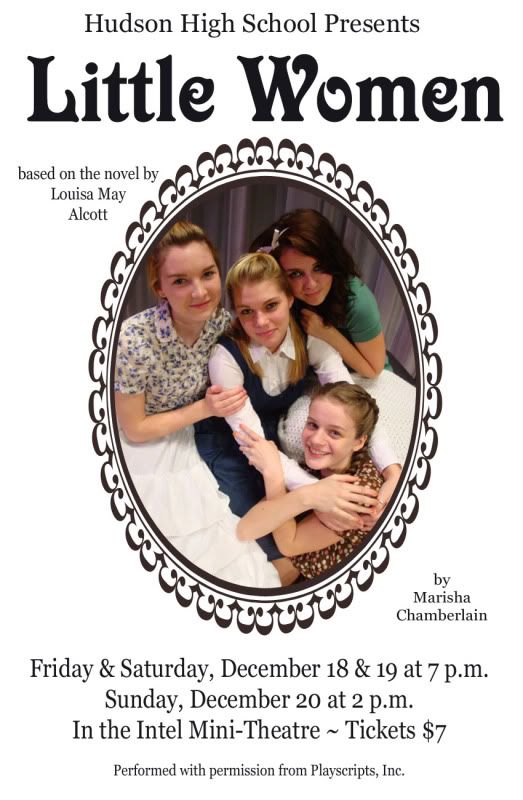
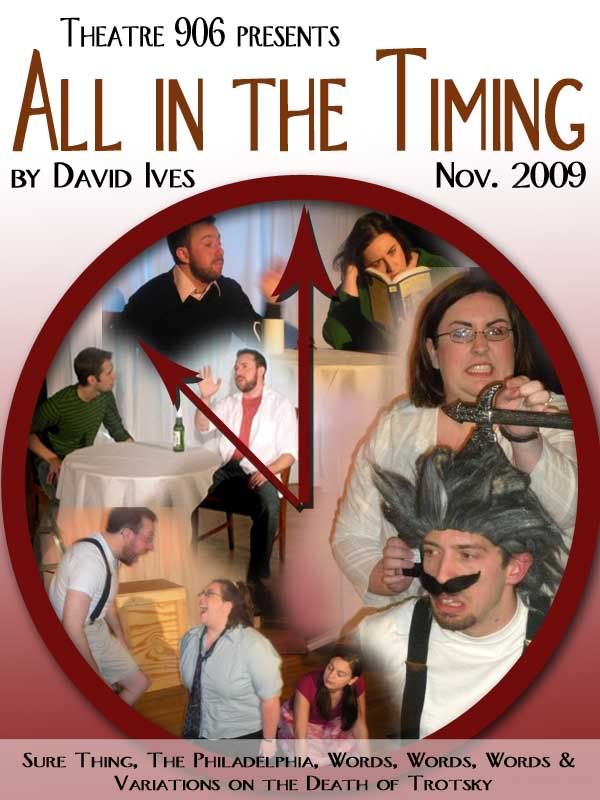

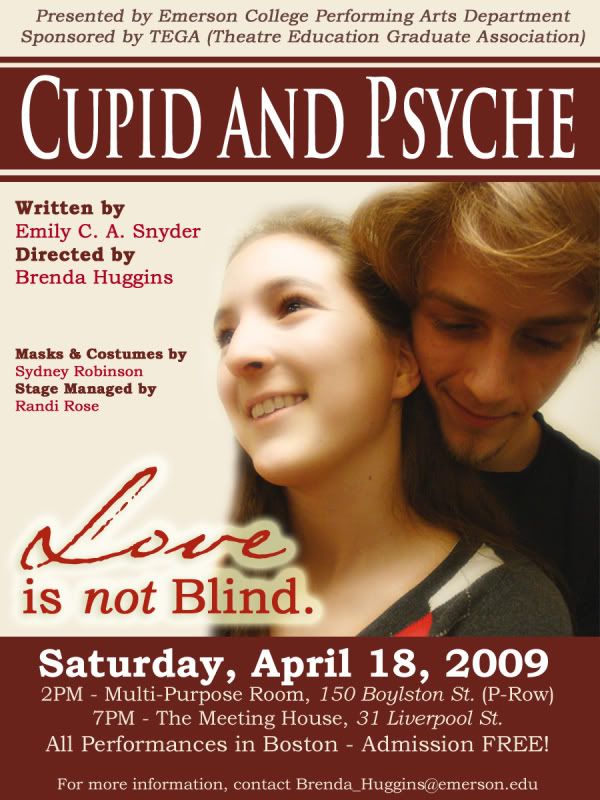
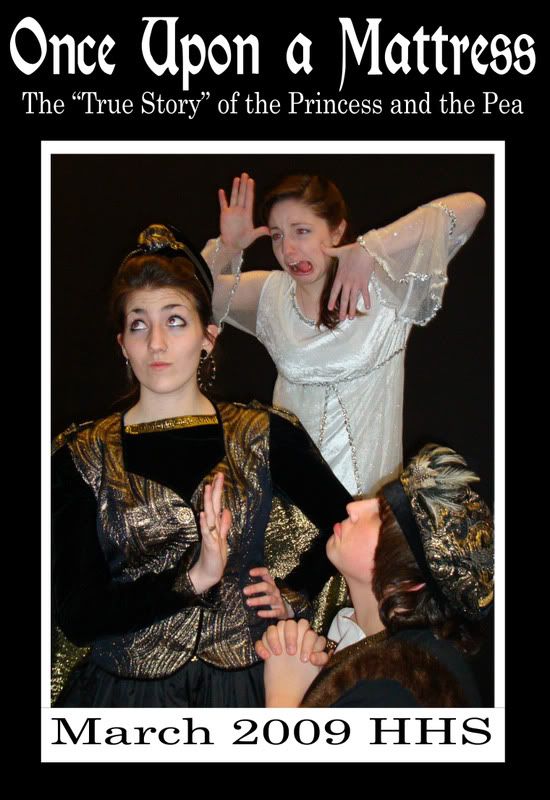


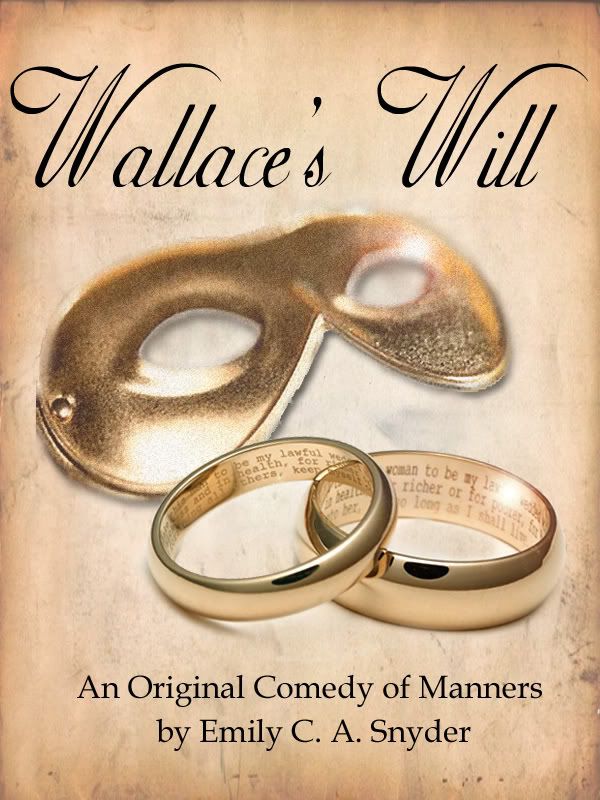

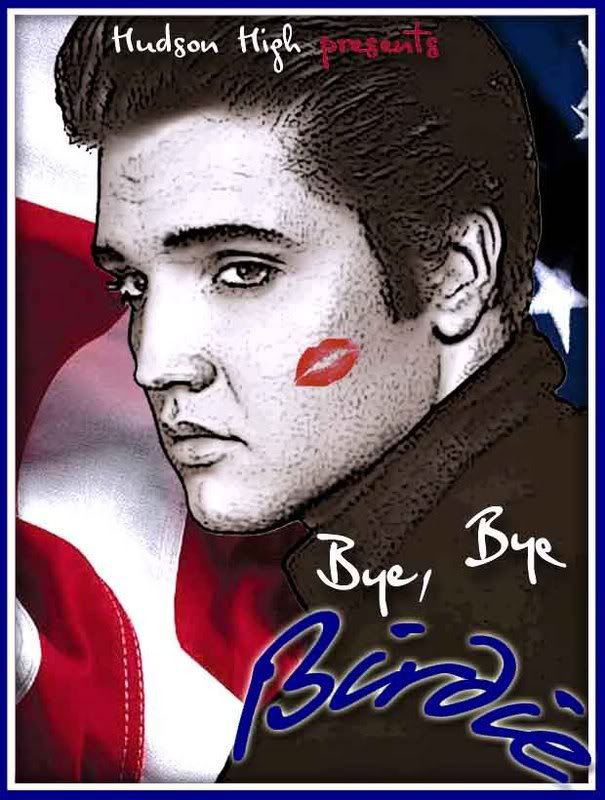
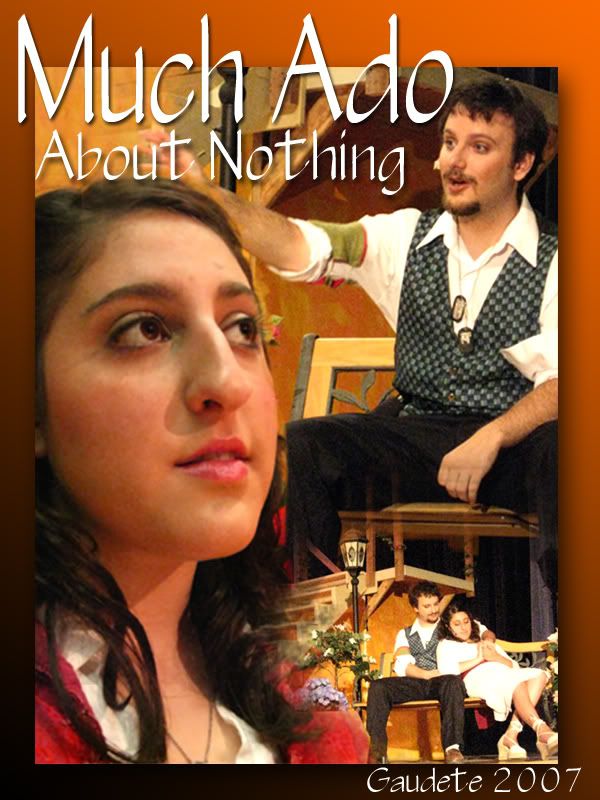
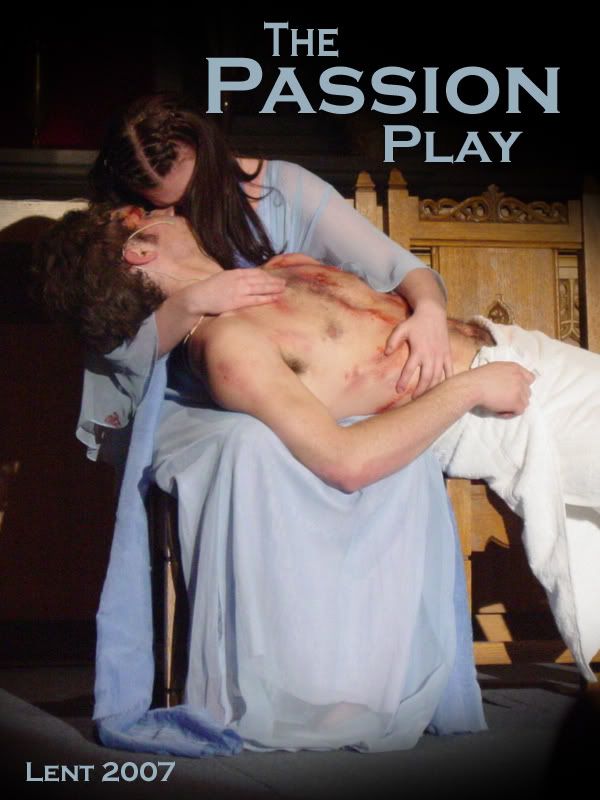
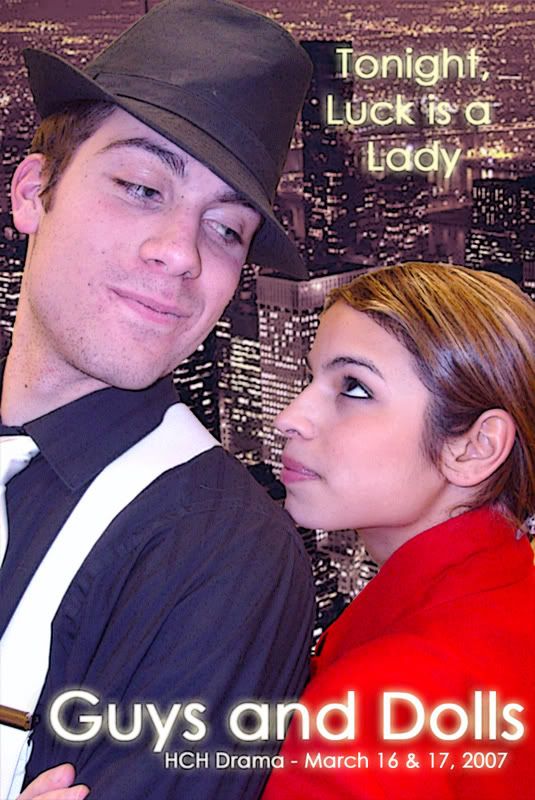
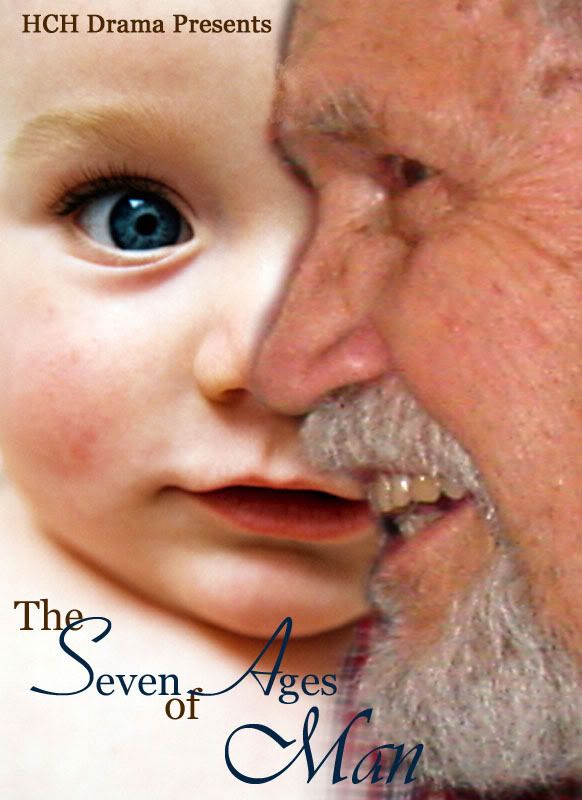

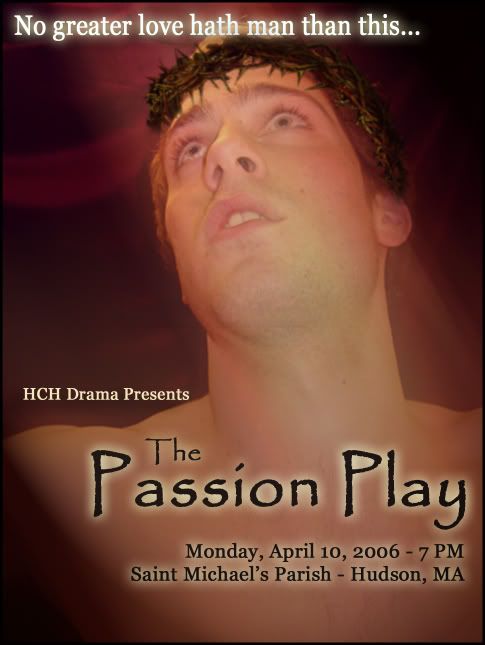





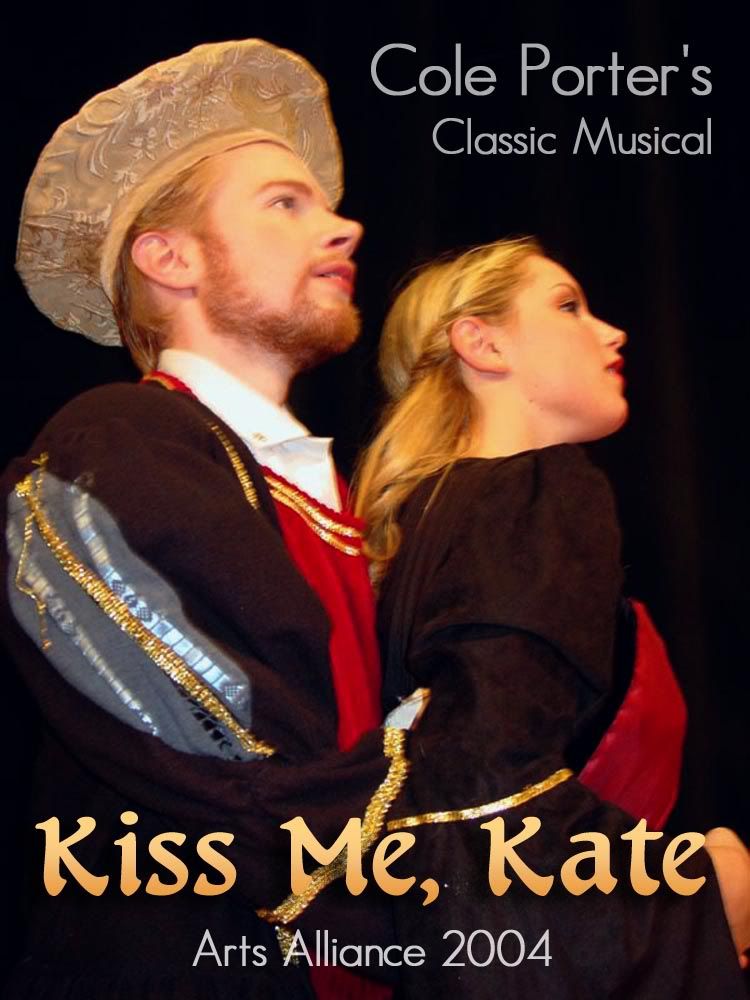

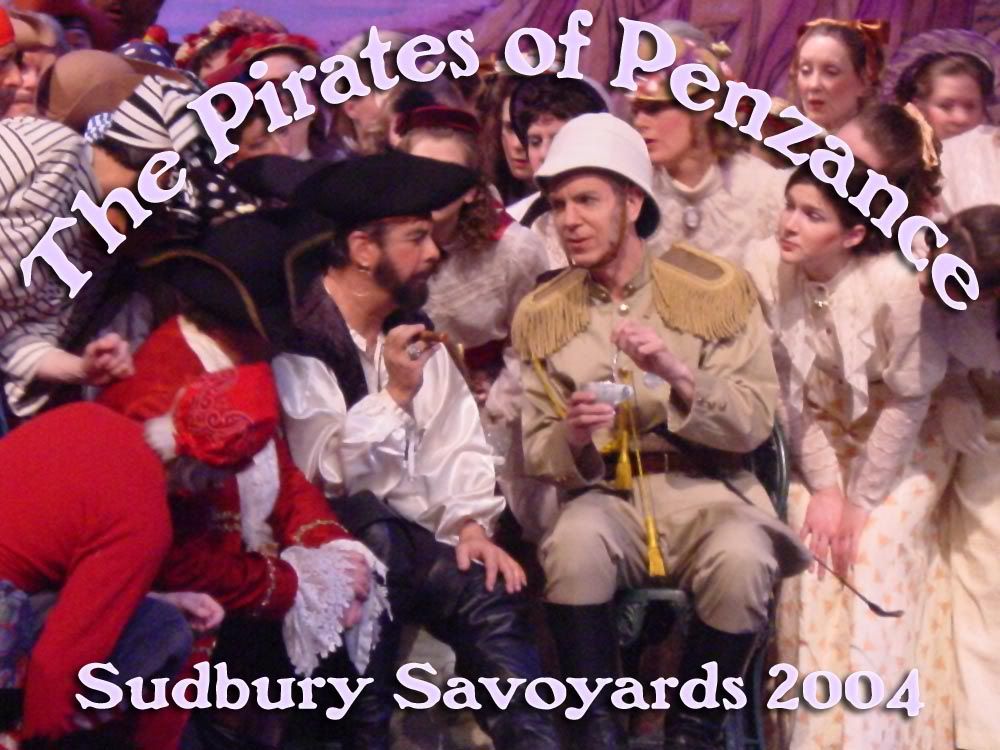

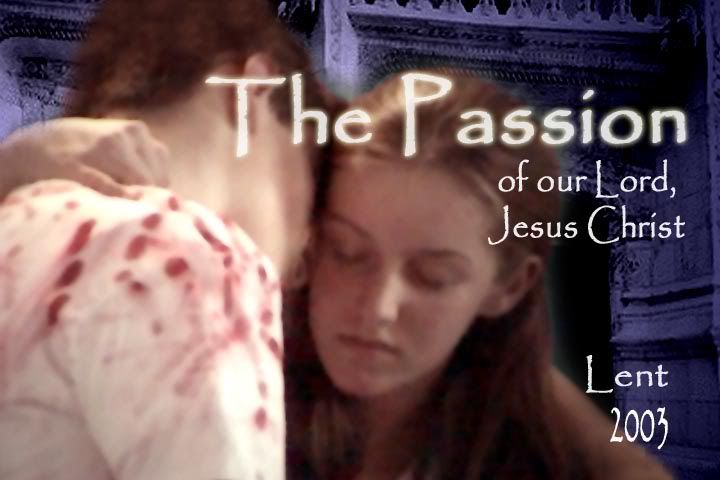


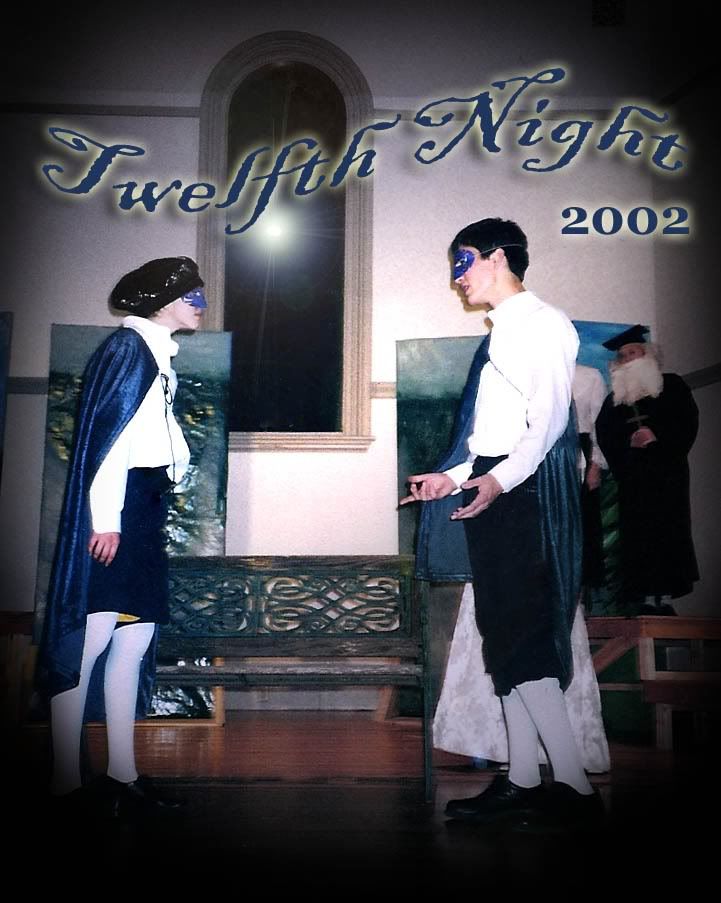
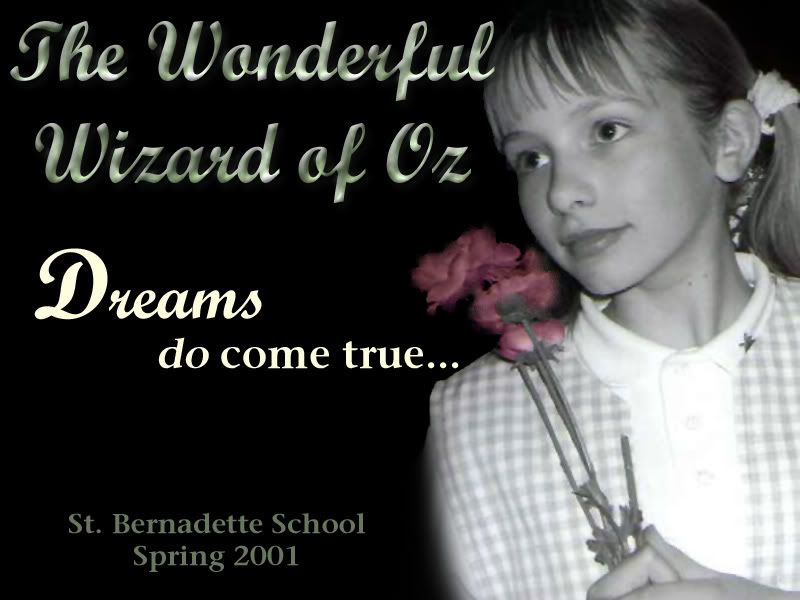
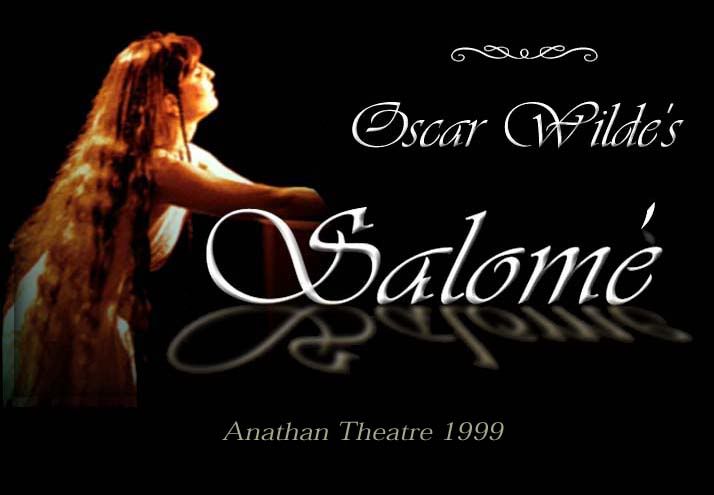


0 Comments:
Post a Comment
<< Home